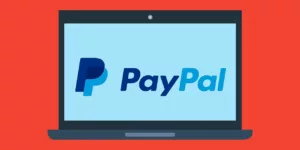PayPal has been a leader for years in the fintech market, providing safe and secure payment processing for a wide variety of vendors and customers on the internet. Recently PayPal expanded its presence in the fintech market for virtual banking. Financial institutions that operate as virtual banks provide traditional banking services while handling transactions over the internet and ATMs. In this article, virtual banking expert Rory Brown covers PayPal’s transition to a virtual bank as it rolls out more basic banking features intended to serve the unbanked population of the United States.
PayPal has developed a very successful business model by providing financial transactional service for moderate fees for many years. The company’s model has not required that it register or be licensed as a bank, as it does not conduct traditional demand deposit banking. Instead, PayPal maintains undisbursed funds in standard commercial checking accounts that earn standard interest. Although PayPal makes money from the interest earned, the company has not entered into the lending market to earn interest from borrowers, and it does not pay interest to customers who have undistributed funds placed with PayPal.
PayPal has recently begun developing and offering basic traditional banking features in partnership with moderately sized U.S. banks to offer debit cards and consumer loans. PayPal is entering the vast market of unbanked and underbanked U.S. customers. All PayPal account holders can now apply for a PayPal Cash Mastercard, a debit card that functions in the same way as traditional demand deposit debit cards for any purchases and transactions that can be accomplished with a Mastercard. Customers with the card are also eligible to have their paychecks direct-deposited into their PayPal account, and are able to deposit traditional checks to their PayPal account through the company’s app on their smartphones.
PayPal offers these services with no monthly fee or minimum deposit requirement. Through their partnership with traditional banks, PayPal account holders receive FDIC insurance coverage on their deposits as well. Account-holders can use the Mastercard to withdraw cash from any ATM that accepts Mastercard, although there are out-of-network fees for ATM use.
While PayPal is currently operating banking services in a way that may not attract large national banks because of lower profit margins, the company’s exploration of the unbanked marketplace in the U.S. and worldwide is forward-looking. PayPal’s strategy will lead to direct and early access to opportunities unique to the emerging fintech industry.
About Rory Brown
Mr. Rory Brown has focused on financial technology and investment management for 30+ years. Rory Brown Co-Founded one of the world’s first Internet Banks and writes extensively about the industry.








